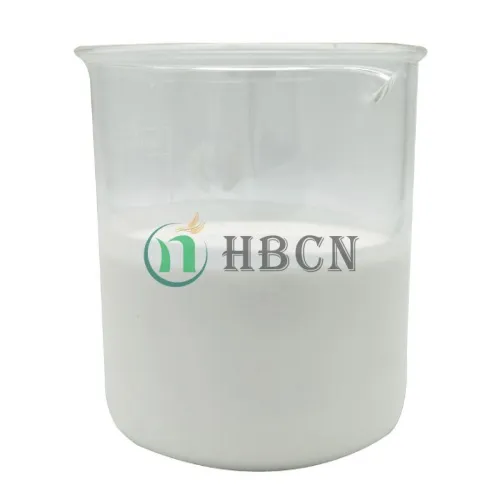
Dec . 31, 2024 00:34 Back to list
Mesotrione Herbicide Overview and Environmental Impact Assessment Guide
Understanding Mesotrione An Overview of Its EPA Registration and Use in Agriculture
Mesotrione is a selective herbicide widely used in agriculture for controlling a variety of broadleaf weeds and grasses. Registered by the Environmental Protection Agency (EPA), this chemical is particularly prominent in the management of weed populations in corn (Zea mays) and other crops. Understanding the significance of mesotrione, its mechanism of action, and its environmental impact is essential for both farmers and environmentalists alike.
Mechanism of Action
Mesotrione belongs to the class of herbicides known as 'triketones.' It works by inhibiting the enzyme 4-hydroxyphenylpyruvate dioxygenase (HPPD), which is critical for the biosynthesis of carotenoids in plants. Carotenoids are essential pigments that protect plants from the damaging effects of light and oxygen. When mesotrione disrupts this synthesis, target weeds cannot produce these vital pigments, leading to plant bleaching and ultimately death. This mechanism makes mesotrione particularly effective against a range of tough broadleaf weeds, including but not limited to, pigweeds, ragweeds, and common lambsquarters.
EPA Registration and Regulations
The EPA has rigorously assessed mesotrione for its efficacy and environmental safety, granting it registration for agricultural use. The registration process involves extensive research to evaluate the herbicide's potential impacts on human health and the environment. This includes studies on its toxicity, environmental fate, and potential for groundwater contamination.
In its assessments, the EPA emphasizes the importance of following the label instructions to minimize risks. This includes recommended application timing, rates, and procedures to protect non-target species. Farmers are advised to use integrated pest management (IPM) strategies, combining chemical applications with cultural practices to achieve sustainable weed control.
Environmental Impact
epa mesotrione product

As with any agricultural chemical, there are concerns regarding the environmental impact of mesotrione. When used according to EPA guidelines, mesotrione has a low risk of affecting non-target plants and animals. However, its potential to leach into groundwater is a concern, particularly in areas with sandy or loamy soils.
It is crucial for users to consider factors such as soil type, weather conditions, and proximity to water bodies when applying mesotrione. Regular monitoring and adherence to best management practices can mitigate these risks. Additionally, the EPA continues to monitor the use of mesotrione and other pesticides, ensuring that any new scientific findings are considered in regulatory decisions.
Benefits to Agriculture
The use of mesotrione offers several benefits to agricultural practices. It allows for effective weed management in various crops, which can lead to increased yields and more efficient use of resources. By controlling weed populations, farmers can reduce competition for nutrients, water, and light, enhancing crop performance.
Moreover, mesotrione's selective nature means it can target undesirable weeds without harming the crops it is applied to, providing a crucial tool in crop management. This selectivity can also help in reducing the need for more toxic herbicides, thereby promoting safer farming practices.
Conclusion
Mesotrione, as registered by the EPA, plays a significant role in modern agricultural practices. Its effective weed control, selective nature, and adherence to environmental guidelines highlight its importance in sustainable farming. However, it remains essential for users to stay informed about the latest research and best practices concerning its application to ensure both agricultural productivity and environmental safety. As agriculture continues to evolve, the responsible use of products like mesotrione will be critical in meeting the growing demand for food while safeguarding our natural resources.
-
Best Abamectin 95% | Top Pesticide for Crop Protection
NewsJul.31,2025
-
Insecticide Spirotetramat 11% + Thiacloprid 11% SC at Good Price
NewsJul.30,2025
-
Best Abamectin SDS - Premium Quality & Reliable Safety Data
NewsJul.29,2025
-
Agrochemicals Pesticides Solutions for Sustainable Farming
NewsJul.29,2025
-
High-Quality Tebuconazole Fungicide for Crop Protection at Best Price
NewsJul.29,2025
-
Chlorfenapyr 8% + Clothianidin 20%SC Pesticide Mixture for Effective Pest Control
NewsJul.28,2025
